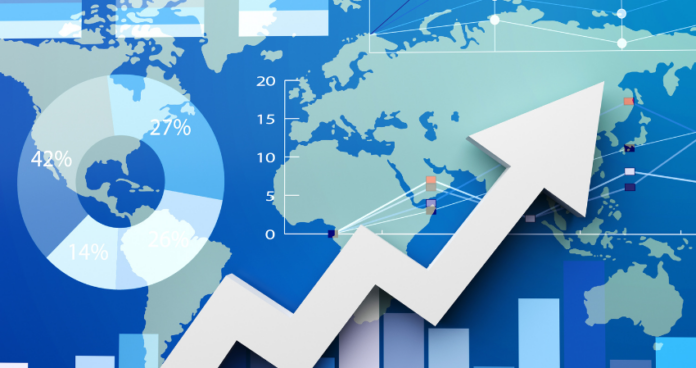The IMF projects global economic growth to stabilize at 3.2% in 2025, with growth expected to reach around 3.3% by 2026, amid ongoing inflationary pressures and geopolitical uncertainties that continue to hinder the recovery of several major economies.
In its World Economic Outlook report, the IMF warned that persistent inflation, rising energy prices, and geopolitical conflicts could disrupt global trade and investment flows, with some regions expected to feel the impact more severely than others.
Advanced economies are forecast to grow at a slower pace, particularly in Europe, where inflation and energy constraints remain significant challenges. In contrast, the U.S. economy is expected to perform better than anticipated, driven by stronger-than-expected consumer demand and labor market resilience. However, even with these improvements, global financial market volatility and rising interest rates could weigh on future growth prospects.
Emerging markets and developing economies are expected to experience mixed outcomes. Strong demand for commodities and manufacturing in Asia, particularly in sectors like electronics and semiconductors, could spur growth in certain regions. However, many emerging economies, including Pakistan, face heightened risks due to their vulnerability to global commodity price fluctuations and the potential impacts of escalating geopolitical tensions.
For Pakistan, the global economic outlook presents both opportunities and challenges. As an emerging market economy, Pakistan stands to benefit from increasing demand for exports in sectors like textiles and agriculture. However, the country remains exposed to global risks, such as the ongoing volatility in commodity prices, which could exacerbate inflationary pressures domestically.
The IMF also emphasized that rising energy costs and disruptions in global supply chains, particularly due to geopolitical conflicts, could have a detrimental impact on Pakistan’s recovery. Furthermore, the tightening of global financial conditions could limit Pakistan’s access to foreign capital, making it more difficult to finance development projects and stabilize its fiscal position.
Globally, the IMF expects world economic growth to stabilize at 3.2% in 2024, with developed economies showing mixed recovery patterns. While the U.S. economy is forecast to outperform expectations, Europe’s largest economies are expected to face slower growth due to persistent inflation and energy constraints. For emerging markets like Pakistan, the global economic outlook poses both risks and opportunities, particularly in navigating the challenges of fluctuating commodity prices, geopolitical tensions, and financial market volatility.
The IMF cautions that unexpected global economic shocks—such as renewed surges in energy prices due to geopolitical conflicts or disruptions in key commodity markets—could derail Pakistan’s fragile recovery. Rising protectionism and potential trade disruptions could further strain Pakistan’s export competitiveness, while exacerbating inflationary pressures, and limit growth in key sectors such as textiles and agriculture.
In this challenging global landscape, policymakers in Pakistan will need to balance short-term economic stability with long-term growth prospects by focusing on strengthening fiscal policies, improving export competitiveness, and mitigating the risks of global financial and commodity market volatility.




